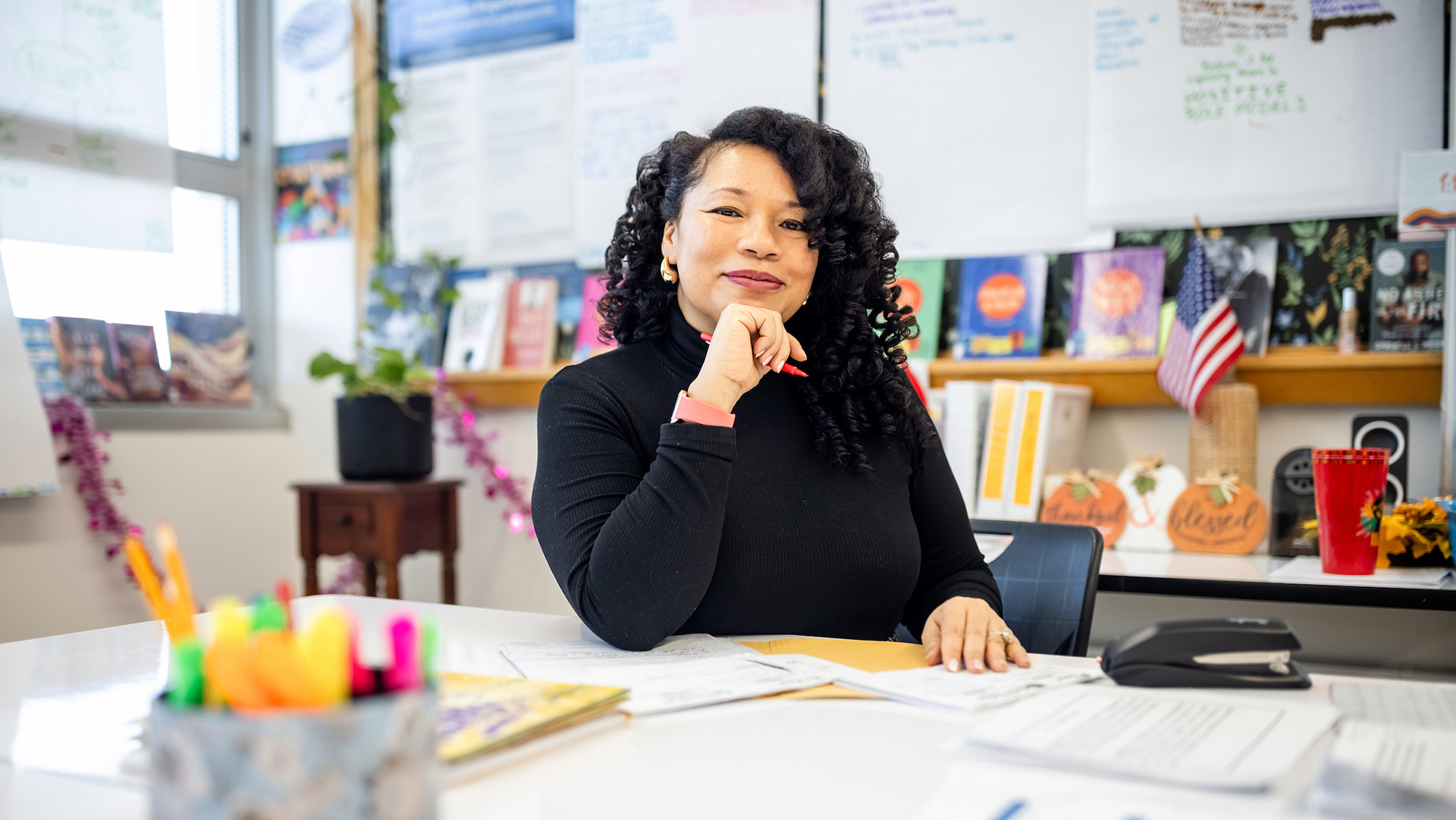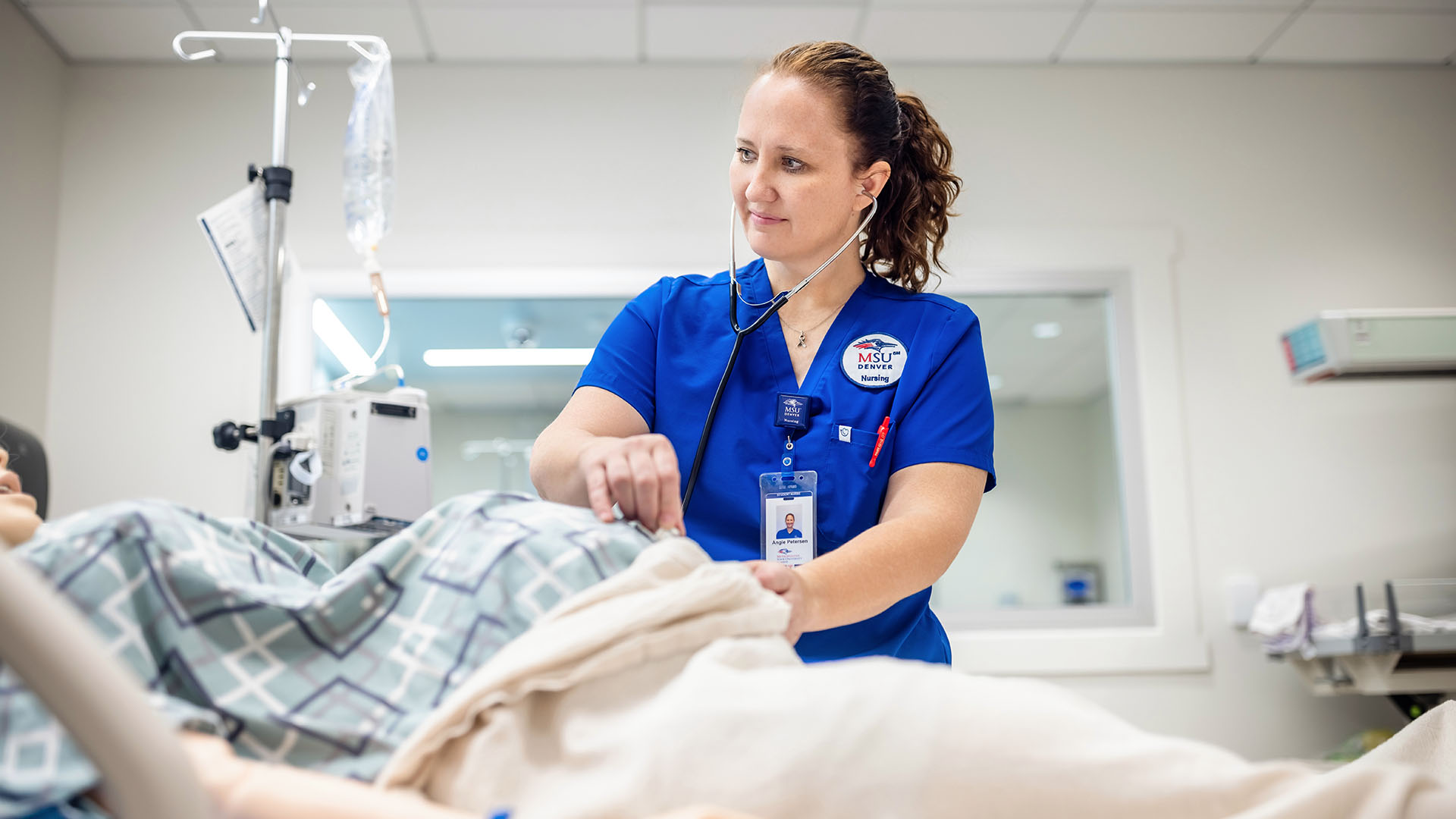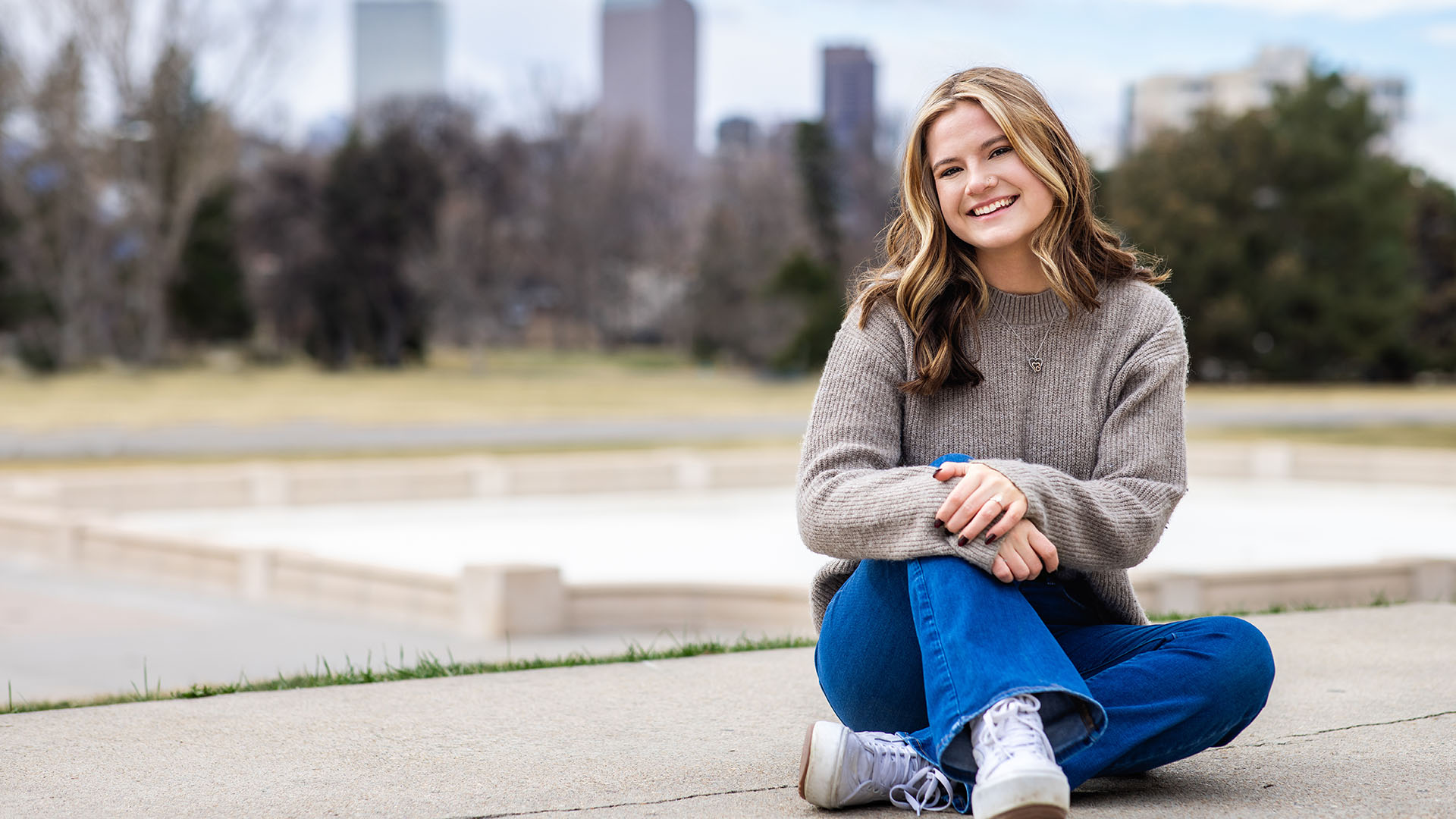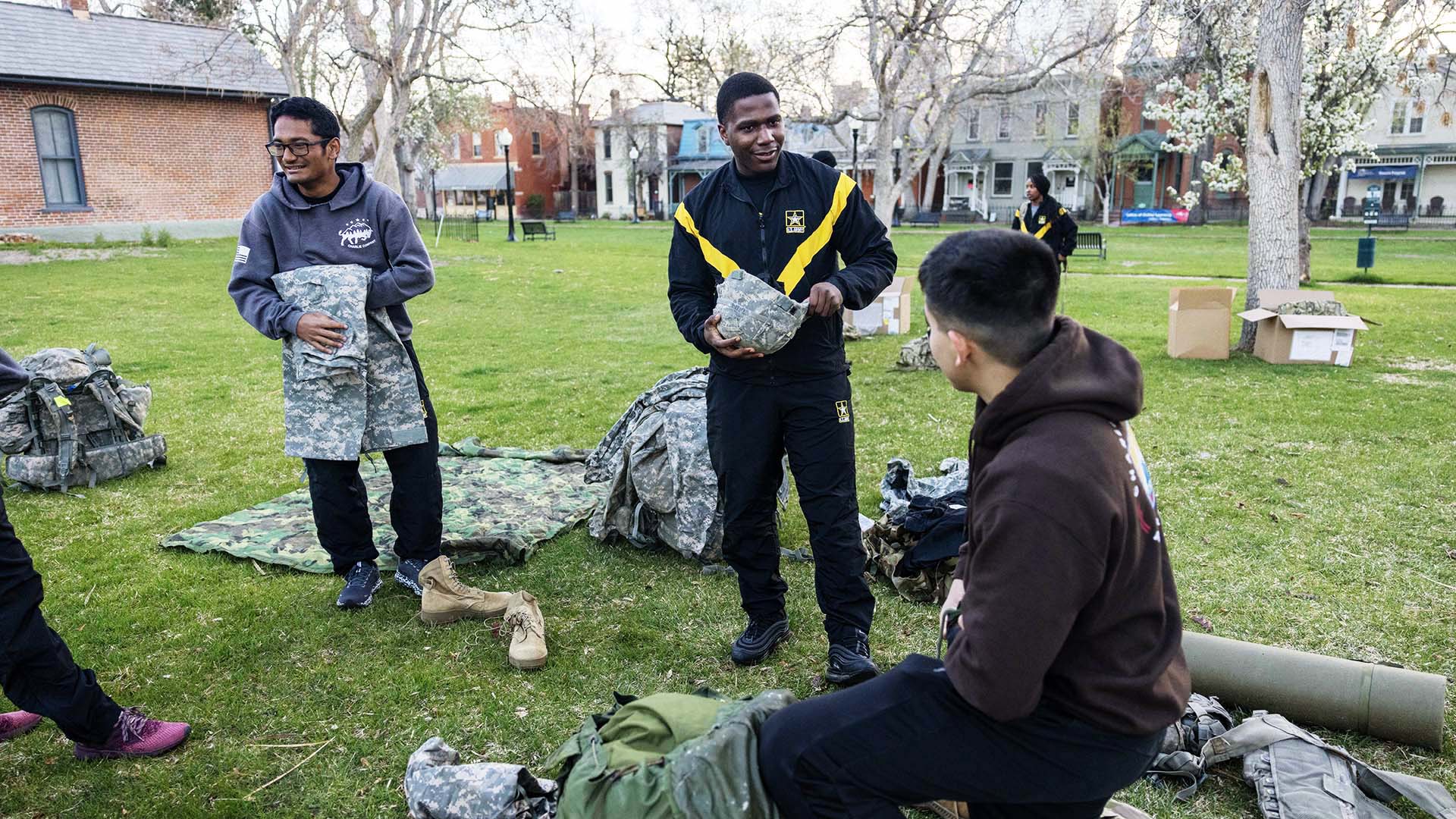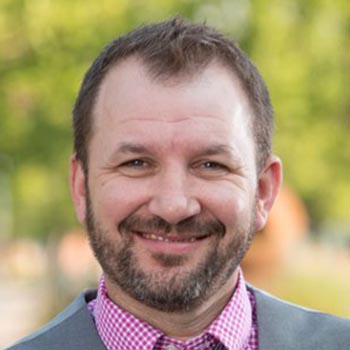Does a college degree make you happier?
Psychologists trace the connection between higher education and subjective well-being.
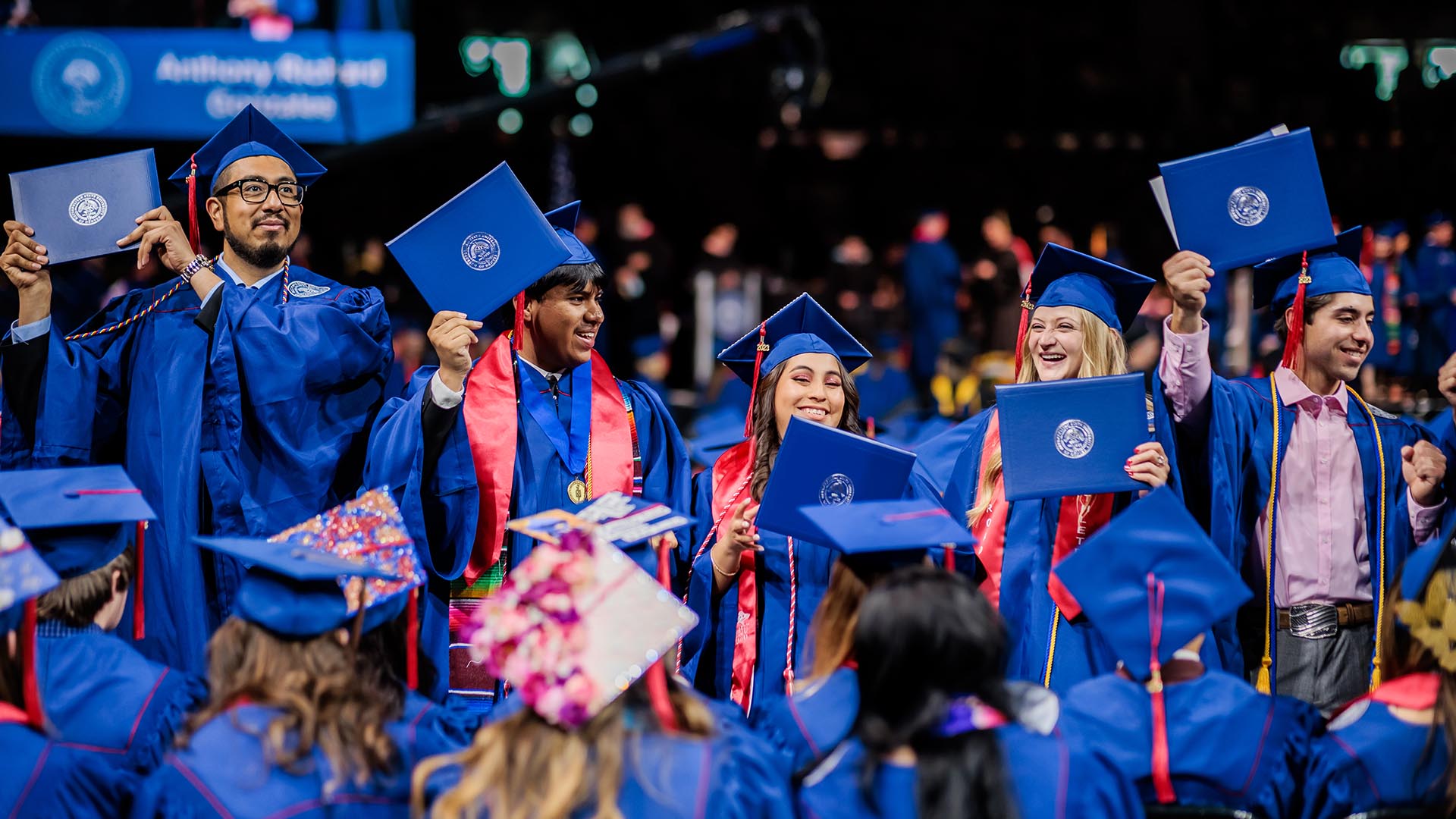
This story appears in the spring 2024 issue of RED Magazine.
Americans’ faith in the value and significance of postsecondary education appears to be waning.
A Gallup poll conducted this past summer found that confidence in higher education stood at just 36%, a sharp drop from 2018 (48%) and 2015 (57%). At the same time, there is robust evidence that people with college degrees are, on average, happier, healthier and more prosperous than those with less education.
Amid the apparent skepticism regarding the benefits of higher education, it’s worth asking: What is the true relationship between higher education and happiness? Does it really make people happier?
“What we do see with education is you have fewer chronic worries, lower rates of depression and suicide and lower neuroticism,” said Aaron Richmond, Ph.D., professor of Psychology at Metropolitan State University of Denver. He suggests that the satisfaction that comes with completing a college degree involves a combination of factors.
“Psychologists use this term ‘subjective well-being.’ That’s things like life satisfaction, positive feelings and reduction of negative feelings,” he said. “But there’s so many other things that go into it, like health factors and quality of life.”
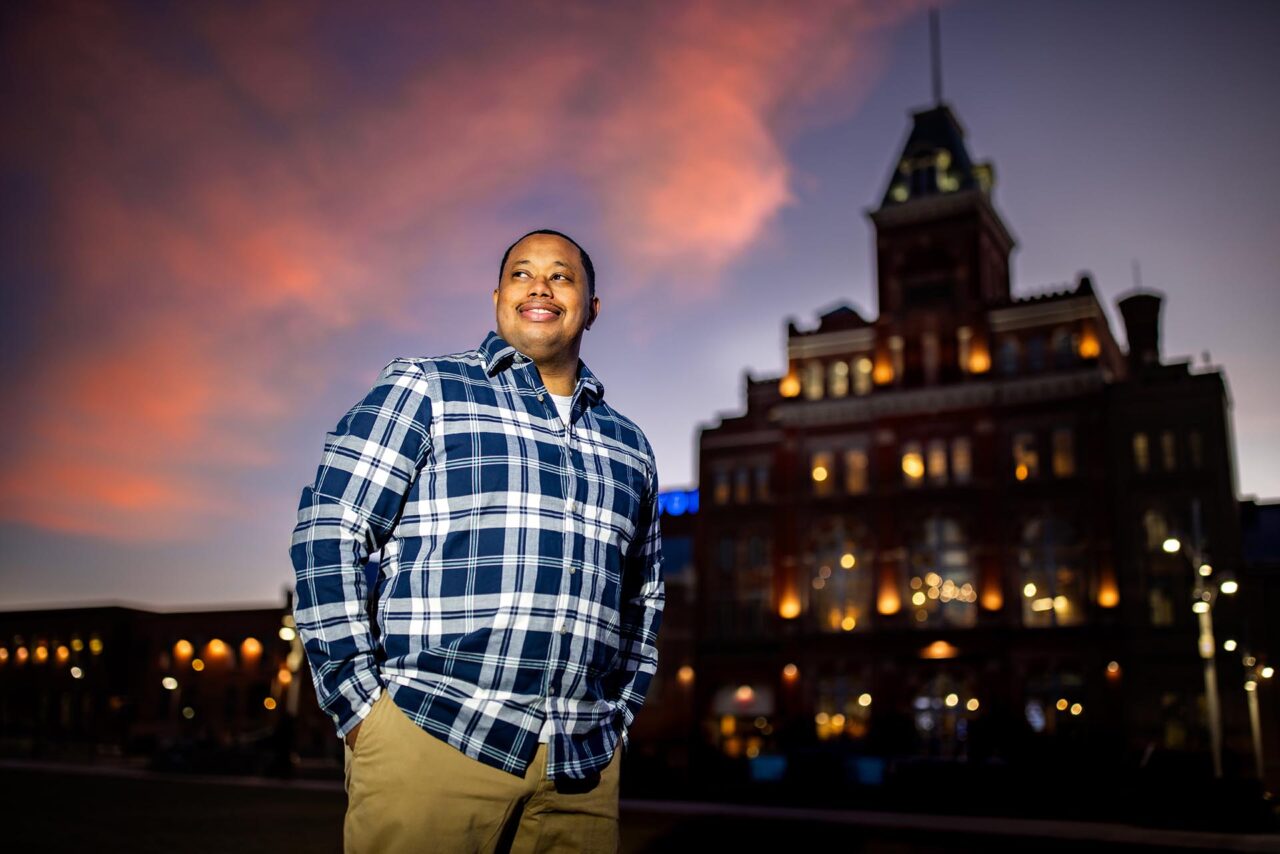
Jameer Fitch had a successful career as a computer analyst with plenty of seniority at his company when, at long last, he graduated from MSU Denver in 2020 with a bachelor’s degree in Legal Analytics and Organizational Leadership through the University’s Individualized Degree Program.
It was the culmination of a 12-year educational odyssey that included stints at two other colleges and a couple of Navy deployments, and it brought a revelation.
“I had a high-achieving job,” he said. “But when I graduated, I was promoted. Without education there’s an invisible ceiling that nobody sees until you’re actually there.”
Now, Fitch, 33, is nearly done with his MBA (also at MSU Denver) and he has his sights set on law school. He also serves as a mentor to current and prospective MSU Denver students, touting the importance of higher education. “There are two things in life nobody can take away from me: my bachelor’s and my master’s — and hopefully my J.D. when I’m done,” he said.
RELATED: Public higher education in Colorado remains a worthwhile investment
In general, studies show that the higher your education level, the more subjective life happiness you have, Richmond said. But the relationship isn’t linear.
“Some research says there’s a period between 30 and 40 when we see the largest correlation between education and subjective life happiness,” he said. It may be that those with higher levels of education are more apt to have achieved their career and income goals by that point, leading to greater life satisfaction.
Subjective well-being also encompasses things like citizenship and positive social relationships, Richmond said. “Are you being a productive citizen of society? What we see is those with college educations are more likely to have those feelings than those without college educations,” he said.
There is a caveat, however.
“It’s not that higher education causes these things to happen,” he said. “They are related. All this research is primarily correlational.” Higher levels of education generally translate into higher incomes, and while money may not buy happiness, “It’s buying you the opportunity to have experiences — and then you have happiness.”
Cynthia Erickson, Ph.D., Richmond’s colleague in the Department of Psychology, says the quality and affordability of a college education play an important role in predicting future happiness.
Erickson cited data from the 2014 Gallup-Purdue Index Report, which surveyed more than 30,000 U.S. college graduates to gauge indicators of wellness and life satisfaction. Whether someone had attended a large university or a small liberal-arts school didn’t matter much. Nor did the school’s reputation or whether it was public or private, and grades were not a good predictor.
“What makes a difference is people feel like they have a professor who cares about them or who has engaged in some sort of project outside of class,” she said. “Those people report higher levels of well-being in the workplace after they leave college.”
“Conversely, one thing that predicts not doing well is having more than $40,000 of student loans,” Erickson said. “If you leave college and you’re so stressed about your student loans, it’s hard for you to thrive. What happens when you have to choose between paying for Grandma’s medicine, paying the rent or paying on your student loan? It’s a dilemma. Student loans are definitely weighing people down.”
MSU Denver offers students a great value, she added. “We focus on undergraduate education,” she said. “Most of the professors really care about students. We do projects with them outside of class. We encourage them to follow their dreams and find their strengths.”
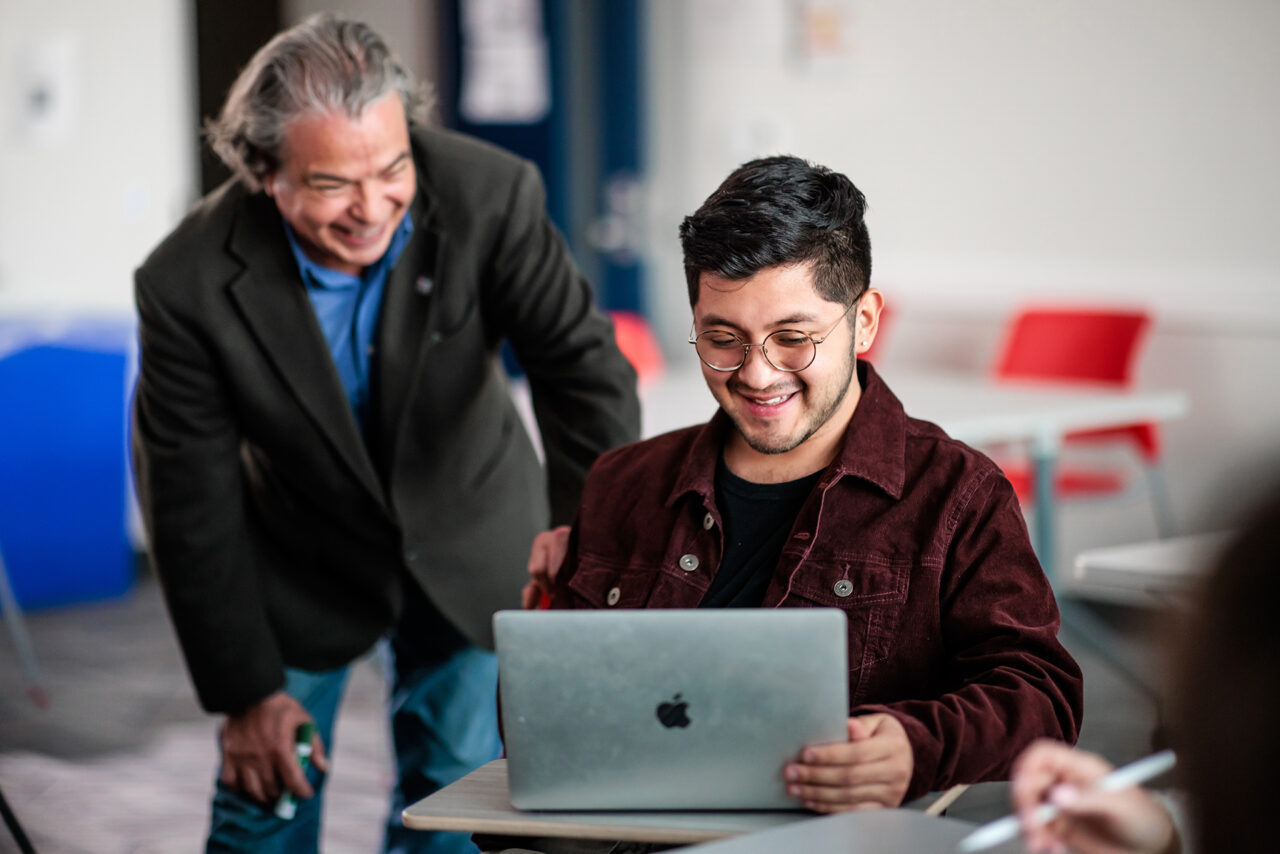
Gabriel Balbuena Trujillo can attest to the benefits of mentoring. Trujillo, 21, a fourth-year student majoring in Psychology with a minor in Spanish, started at MSU Denver in 2020, when the Covid-19 pandemic was still raging.
During his first two years of college, Trujillo’s mother, Gabby, battled cancer before succumbing at the age of 50, leaving him and his brother Kevin, 28, to raise their two younger brothers, ages 10 and 13. “We knew we had to take care of our little brothers,” Trujillo said. “They didn’t have anyone else.”
Now, he takes the bus to the Auraria Campus from their home in Colorado Springs. It requires considerable time management, but he feels it’s worth it.
“Education is very much a privilege,” Trujillo said. “I’ve learned so much more, not just from my classes but also how to work with people, how to talk to people, how to communicate. I really do see that there’s a lot of potential that comes from getting an education.”
He and his older brother are passionate about encouraging their younger siblings in school. “For our little brothers, we want to get them through middle school and high school,” he said. “We would love for them to go to college, but we also know that college is not for everyone. We would want them to at least try it out.”
They’re also fulfilling a promise they made to their mother. “Before she passed away, she made my brother and me promise that we would continue with our education as well,” Trujillo said. “I would say 100% it’s made me happier.”

Jameer Fitch acknowledges he struggled for a time to complete his studies at MSU Denver. “I could not find the mental tools; I did not have the background,” he said. “I did not know how to cross the finish line at that time.”
But something changed on a deployment to Bahrain.
“I met with many people who were successful — doctors and lawyers,” he said. “I had a self-discovery moment and realized I wanted to be a lawyer.” But first, he needed to complete his bachelor’s degree. “That was kind of my motivation. When I came back from deployment, I had a different mindset. I felt like I had a foundation.”
For Fitch, the experience of completing his degrees speaks for itself. Walking across the stage to receive his bachelor’s diploma in the midst of the Covid-19 pandemic “was an eye-opening experience for me and my family,” he said. “It has made me extremely happy.”

